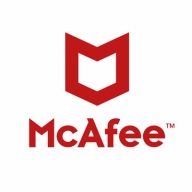


McAfee Total Protection for Data Loss Prevention and Forcepoint Data Loss Prevention are competitive in the data loss prevention market. Forcepoint holds a slight advantage with a reputation for strong endpoint security and innovative features.
Features: McAfee Total Protection is known for its user-friendly administration and seamless integration with other McAfee solutions, supporting desktop virtualization and providing customizable DLP features. Forcepoint distinguishes itself with easy setup, advanced optical character recognition, and unique fingerprinting technology that facilitates effortless policy implementation.
Room for Improvement: McAfee is criticized for high resource usage, expensive licenses, and average customer support, with needed improvements in GUI and memory-based threat detection. Forcepoint, despite being more cost-effective, struggles with complex deployment and support responsiveness, with users seeking enhanced integration capabilities and better AI automation.
Ease of Deployment and Customer Service: McAfee favors on-premises deployment, while Forcepoint provides flexible cloud options including hybrid solutions. McAfee's support is average, often requiring partner assistance, whereas Forcepoint has geographic support limitations, with both vendors facing deployment complexity.
Pricing and ROI: McAfee is perceived as expensive with complex licensing, although it offers a decent ROI. Forcepoint, while also costly, is praised for its transparency and competitive pricing, particularly with OEM integrations, offering a strong feature set for the price.
For the small project I was working on, using the basic tier provided a huge improvement at zero cost.
In terms of return on investment with Cloudflare, it costs my time to set them up, but basically once they're set up, it's done.
I have seen a return on investment, and the biggest one is saving time.
Cloudflare does not offer hands-on technical support to fix customer problems but rather a self-service model.
I would rate the technical support with Cloudflare as excellent every time I've had to call them.
I have primarily worked not with the tool's customer support but with the product's sales engineers and technical sales engineers, who seem to know their stuff.
They conduct sessions to check logs and policies, unlike Symantec, where engineers may temporarily check and ask for logs, causing delays.
We were very happy with the technical support engineers that are supporting us.
Improvements could be made in response time or quality as all of them can be rated a seven.
It is a SaaS tool, but the fact that they have workloads deployed across the world proves that it is a highly scalable tool.
The tool offers very good performance, even during high-traffic periods.
I rate the solution’s scalability an eight out of ten.
The key principle of a scalable DLP uses a single policy engine across multiple data channels such as endpoint, email, web, cloud, and network.
It is easily scalable because it is purely deployed on on-premises and with less downtime.
I rate the solution’s stability an eight out of ten.
The service is very stable with no impacts during high-traffic periods.
The stability of Forcepoint Data Loss Prevention is reliable, with minimum crashes, errors, or performance issues.
Sometimes there are some issues in the product itself; whenever they release a new version, vulnerabilities come into the picture, and we need to update the product to mitigate such issues.
Despite these challenges, overall, Cloudflare remains the preferred solution compared to Azure, AWS CloudFront, and Google Cloud Armor.
Areas like how assessment, discovery, and payload are dealt with and how it all comes into your organization can be considered when trying to make suggestions to Cloudflare for improvements.
There are some performance considerations when it comes to dynamic content that involves fetching data from databases or using APIs.
While Forcepoint is mostly on-premises, I suggest that to compete with Symantec, they should consider cloud solutions.
Forcepoint Data Loss Prevention is already capable enough to integrate with data classification tools such as Boldon James and Microsoft MIP.
Improvement in Forcepoint Data Loss Prevention, especially when applying a positive DLP approach, needs to focus on decreasing false positive incidents.
Sometimes there are some issues in the product itself; whenever they release a new version, vulnerabilities come into the picture, and we need to update the product to mitigate such issues.
I see enhancement in reporting for McAfee Total Protection for Data Loss Prevention as a potential area of improvement to think from a data asset perspective, not from a policy perspective, and do more analysis regarding the user's perspective rather than the policy's perspective.
I find it to be cheap.
I rate the product’s pricing a five out of ten, where one is cheap, and ten is expensive.
The tool is a premium product, so it is very expensive.
There have been situations where the license expired before the purchased license was sent, resulting in the DLP being out of service.
The pricing is reasonable and medium, not very low, but fair for the product offered.
My experience with pricing, setup cost, and licensing for Forcepoint Data Loss Prevention is that the pricing was reasonable.
I rate the pricing for McAfee as competitive compared to other companies; they are in the same range, not a cheap product and not an expensive product.
The most valuable features of the solution are performance and security.
Techniques like minification and image compression reduce the size of assets, leading to better performance and faster user load times.
The solution has been able to compare it to the market, and I think the product has taken great strides in automating quite a bit of things, and they use a lot of AI.
It provides multiple customization options for policies, which makes it superior to Symantec.
It supports 50 file types and continuously improves accuracy with user feedback, enabling auto-discovery across cloud, endpoint, and on-premises data stores without extra cost of repeated scans.
Forcepoint Data Loss Prevention's email workflow checks whether emails sent from the office are forbidden by DLP rules and sends a notification to the manager accordingly.
We are just restricting data to be uploaded, which is the best option that allows us to control organizational data, making it the biggest benefit for us in McAfee Total Protection for Data Loss Prevention.
I find unique value in McAfee Total Protection for Data Loss Prevention specifically in controlling the application from a DLP perspective; when a computer downloads a package, you can understand where it downloaded this package from, and you can create a policy regarding the source of the download.

| Company Size | Count |
|---|---|
| Small Business | 46 |
| Midsize Enterprise | 8 |
| Large Enterprise | 25 |
| Company Size | Count |
|---|---|
| Small Business | 33 |
| Midsize Enterprise | 6 |
| Large Enterprise | 27 |
| Company Size | Count |
|---|---|
| Small Business | 18 |
| Midsize Enterprise | 4 |
| Large Enterprise | 8 |
Cloudflare enhances web performance and security with features like CDN caching and DDoS mitigation while providing easy DNS management and intuitive setup through its user-friendly dashboard.
Cloudflare is recognized for its comprehensive web security and performance solutions. Speed improvements are achieved through caching mechanisms and DDoS protection, combining ease of DNS management with flexible page rules. The robust analytics and threat insight tools provide valuable data, assisted by a user-friendly dashboard allowing quick setup and configuration. An API offers dynamic DNS settings ensuring low latency and high performance across the globe.
What are Cloudflare's key features?Cloudflare finds utility across industries for DNS management and defense mechanisms. Its content delivery network assures fast content distribution and fortified security. Businesses integrate features like web application firewalls, load balancing, end-to-end SSL, and zero trust to protect websites from cyber threats while ensuring resilience and reliable performance.
Forcepoint Data Loss Prevention (DLP) protects sensitive data everywhere it resides and moves, across endpoints, cloud apps, web, email, and on-premises environments. It delivers unified policies and centralized visibility to simplify compliance and prevent data breaches in real time.
With over 1,800 pre-defined templates, policies, and classifiers covering the regulatory requirements of 90+ countries and 160+ regions, Forcepoint DLP accelerates deployment and ensures precise protection of regulated and sensitive data.
Flexible deployment options let organizations protect data on-premises, in the cloud, or through a hybrid approach using the same unified console. Powered by AI-driven classification and Risk-Adaptive Protection (RAP), Forcepoint DLP reduces complexity, automates compliance, and safeguards data wherever work happens.
Forcepoint Data Loss Prevention is equipped with advanced fingerprinting technology, optical character recognition, and a large library of predefined rules. Organizations gain comprehensive data visibility and effective policy enforcement, supported by dynamic user behavior analysis and compliance capabilities. Its intuitive interface and flexible deployment options position it as a top choice for data security, although it could improve in communication reliability and language support. Complex reporting, machine learning integration, and cross-platform compatibility require enhancements.
What are the key features of Forcepoint Data Loss Prevention?
What benefits and ROI can users expect from reviews?
In industries like finance, legal, and healthcare, Forcepoint Data Loss Prevention is implemented to protect sensitive data such as credit card information and personal identification. It monitors and controls data on networks, endpoints, and cloud services, detecting unauthorized transfers through features like OCR and fingerprinting.
We monitor all Data Loss Prevention (DLP) reviews to prevent fraudulent reviews and keep review quality high. We do not post reviews by company employees or direct competitors. We validate each review for authenticity via cross-reference with LinkedIn, and personal follow-up with the reviewer when necessary.